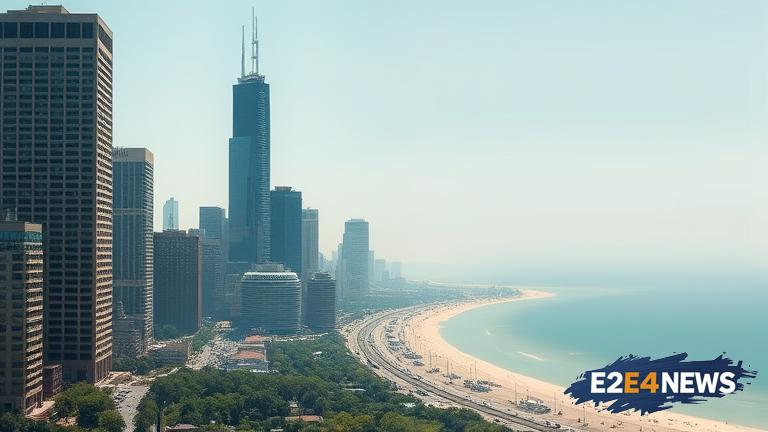A recent study conducted by researchers at Northwestern University, led by Brandon Johnson, has shed light on the devastating effects of heat waves on Chicago’s residents. The study, which analyzed data from past heat waves, reveals that these extreme weather events have a disproportionate impact on vulnerable populations, including the elderly, young children, and those with pre-existing medical conditions. According to the research, heat waves in Chicago are becoming more frequent and prolonged, with temperatures often reaching record-breaking highs. This trend is particularly alarming, as it can lead to an increase in heat-related illnesses and deaths. The study also found that certain neighborhoods in Chicago are more susceptible to heat waves due to the urban heat island effect, which occurs when built-up areas absorb and retain heat. The researchers used advanced modeling techniques to simulate the effects of heat waves on different areas of the city, taking into account factors such as population density, green spaces, and building materials. The results show that some neighborhoods, particularly those with limited access to green spaces and tree cover, experience significantly higher temperatures than others. The study’s findings have significant implications for public health policy, highlighting the need for targeted interventions to protect vulnerable populations during heat waves. This could include initiatives such as providing air-conditioned public spaces, increasing access to cooling centers, and implementing early warning systems for heat waves. Furthermore, the research emphasizes the importance of urban planning and design in mitigating the effects of heat waves, such as incorporating more green spaces and using heat-reducing materials in construction. The study’s lead author, Brandon Johnson, noted that the research aims to inform policy decisions and raise awareness about the urgent need to address the impacts of heat waves on Chicago’s residents. The study’s findings are particularly relevant in the context of climate change, which is expected to lead to more frequent and severe heat waves in the coming years. As the city of Chicago continues to experience extreme weather events, the need for effective strategies to mitigate the effects of heat waves has become increasingly pressing. The researchers hope that their study will contribute to the development of evidence-based policies and interventions to protect the health and well-being of Chicago’s residents. In addition to its implications for public health, the study also highlights the importance of considering the social and economic factors that contribute to heat vulnerability. By examining the relationships between heat waves, urban design, and social inequality, the researchers aim to provide a more nuanced understanding of the complex issues surrounding heat waves in Chicago. Overall, the study provides a timely and important contribution to the ongoing conversation about heat waves and their impacts on urban populations.
